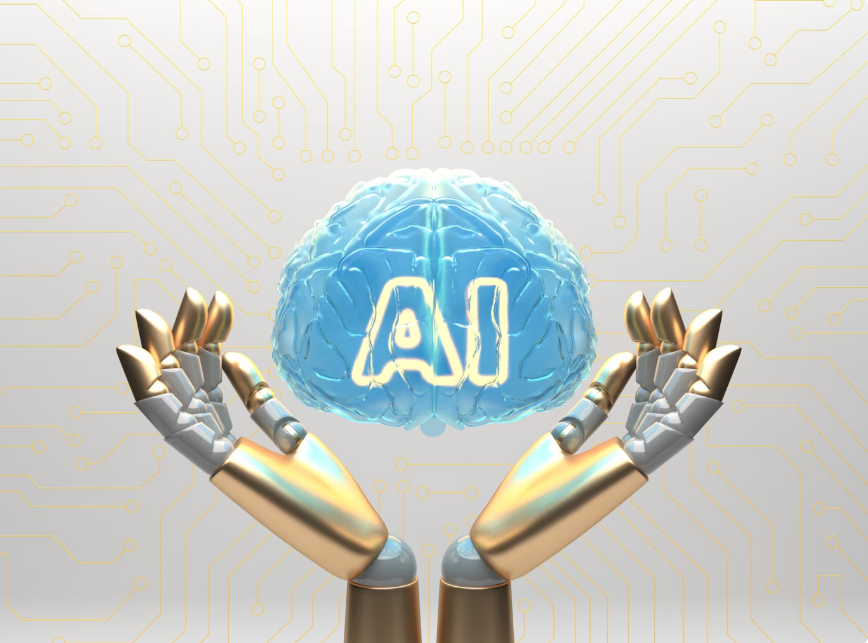
Introduction to AI in Content Creation
In recent years, artificial intelligence (AI) has increasingly transformed the landscape of content creation, marking a significant evolution in how creators, marketers, and businesses approach the process.
As we look towards 2025, the integration of AI technologies into the content creation workflow has become not only beneficial but also essential.
AI tools are now adept at generating ideas, automating repetitive tasks, and personalizing content to enhance user engagement.
This shift allows creators to redirect their focus towards the strategic and creative aspects of content production, fostering innovation and quality.
The significance of AI lies in its ability to analyze vast amounts of data quickly and efficiently. This capability enables content creators to understand audience preferences and trends, ensuring that their output resonates more effectively.
By utilizing AI, creators can make informed decisions driven by data-driven insights, ultimately enriching their content and improving the overall user experience.
Furthermore, AI tools streamline various aspects of the content creation process, from ideation and drafting to editing and publishing.
This automation alleviates the workload, making it feasible for teams to produce a higher volume of content without compromising on quality.
This blog post aims to delve deeply into the future of content creation by highlighting top AI tools that are poised to make significant impacts in the coming years.
By outlining these innovative technologies, we will explore how they can enhance the creative process, improve efficiency, and ultimately transform the way we approach content production.
As we journey through the evolving landscape of AI in content creation, it is crucial to recognize both the opportunities and challenges that accompany these advancements, paving the path for a more efficient and dynamic future.
Key AI Tools Transforming Content Creation

The landscape of content creation in 2025 is being significantly shaped by a variety of innovative AI tools designed to enhance efficiency and creativity.
Among these, one of the leading tools is Jasper AI, which specializes in writing assistance. Jasper AI leverages natural language processing to generate compelling written content, making it an invaluable resource for marketers and bloggers alike.
Its ability to understand context and tone allows users to produce personalized content that resonates with their audience, setting it apart from traditional writing aids.
Another noteworthy tool is Descript, which reshapes the video production process.
This platform integrates transcription and editing features, enabling creators to produce high-quality videos with minimal effort.
Descript’s unique approach allows users to edit video by simply editing the text transcript, which streamlines the content creation workflow.
This tool has become popular among content creators seeking to combine efficiency with creativity in video content.
For graphic design needs, Canva AI stands out due to its user-friendly interface and plethora of design templates.
By incorporating AI-driven features, Canva AI allows users to generate custom graphics and branding materials tailored to their specific style and requirements.
This tool democratizes design, enabling individuals without formal training to create professional-quality visuals effortlessly.
Moreover, AI tools like Surfer SEO are revolutionizing search engine optimization. Surfer SEO analyzes top-ranking content to provide actionable insights that help users optimize their articles for search engines.
By incorporating keyword analysis and content structure recommendations, it empowers content creators to enhance their visibility and engagement online effectively.
Each of these AI tools epitomizes the transformative potential of artificial intelligence in the content creation industry, positioning businesses and individual creators to meet the evolving demands of audiences in 2025.
Challenges and Considerations in Using AI Tools

The integration of AI tools into content creation processes presents several challenges and ethical considerations that warrant careful examination. One prominent concern revolves around originality.
As artificial intelligence relies on vast databases of existing content to generate new material, there is a significant risk that output may inadvertently mimic or closely resemble pre-existing works.
This raises questions about copyright and intellectual property rights, highlighting the necessity for clear guidelines that protect original creators while allowing AI tools to inspire and assist in the generation of new ideas.
Authenticity is another critical factor in the use of AI-generated content. Brands often develop a unique voice and style, reflecting their values and resonating with their audience.
As content creation increasingly employs AI, there is a potential for the dilution of these distinctive traits. Striking a balance between leveraging AI for efficiency and maintaining the authentic tone that defines a brand requires a well-thought-out strategy.
Companies must ensure that AI-generated content aligns with their message and aesthetic, fostering engagement without losing the human touch that enhances emotional connections with audiences.
Moreover, biases in AI algorithms can lead to content that unintentionally reflects societal stereotypes or prejudices.
Such biases may arise from the training datasets used to develop these tools, which can inadvertently perpetuate existing inequalities.
Content creators and brands must remain vigilant and conduct regular assessments of AI-generated content to identify and mitigate any biases present in the outputs.
By adopting inclusive practices and involving diverse teams in the content creation process, brands can employ AI tools ethically while championing representation and fairness.
In conclusion, while AI tools offer exciting opportunities for enhancing content creation, they also come with significant challenges.
Balancing technological advancement with ethical responsibility will be vital for ensuring that the future of content remains both innovative and true to its human roots.
Future Trends and Predictions for AI in Content Creation
As we project into the future of content creation, particularly beyond 2025, several key trends and predictions for artificial intelligence (AI) will shape the industry landscape.
One significant advancement anticipated is in the field of natural language processing (NLP). Ongoing
developments in AI algorithms are expected to lead to enhanced understanding and generation of human-like text, allowing content creators to produce articles, blogs, and marketing materials that resonate more deeply with audiences.
This improved NLP capability will enable AI to better grasp context, sentiment, and even nuances of language, thereby making content more engaging and relatable.
Another trend that may unfold is the rise of personalized content generation. As AI systems become increasingly sophisticated, their ability to analyze user preferences, behaviors, and demographics is expected to improve.
This will allow for the creation of highly tailored content that meets individual user needs. The integration of machine learning techniques will empower content creators to leverage vast amounts of data, fostering the development of unique narratives that cater to niche audiences.
This personalized approach is likely to enhance user experience, driving greater engagement and loyalty.
Additionally, the convergence of AI with emerging technologies such as virtual reality (VR) and augmented reality (AR) has the potential to revolutionize content creation.
By integrating these technologies, content creators can produce immersive experiences that captivate users, transforming static information into interactive storytelling.
For instance, virtual reality could allow users to experience narrative content in a three-dimensional space, while augmented reality could overlay digital elements onto the real world, facilitating innovative ways to convey information.
As these technologies evolve, their marriage with AI could result in a new paradigm of content that is not only informative but also profoundly interactive and engaging.
In conclusion, the future of content creation lies in the continuous evolution of AI technologies.
By embracing and adapting to these anticipated advancements, content creators can enhance their workflows and produce richer, more impactful outputs that resonate effectively with audiences in the years to come.
